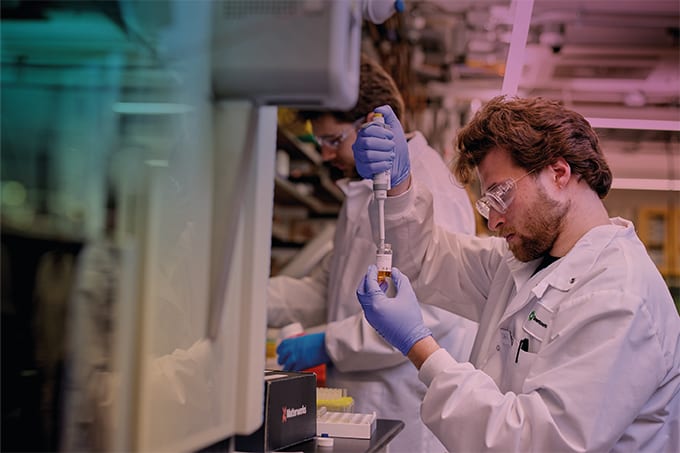
Generative AI has already been used to help write millions of science papers – a trend that is set to continue. Naturally, many are asking if this is OK.
Much of the debate has revolved around the ethics of using AI tools and the impact on paper quality, balanced with the potential productivity gains. For example, Flippo De Angelis argues that although AI won’t be able to do a good job of creatively going beyond the results to make connections and communicate the wider significance of your findings – citing Watson and Crick’s exemplary understatement: “It has not escaped to our notice that the specific pairing we have postulated immediately suggest a possible copying mechanism for the genetic material” – it can do a good job of synthesizing material to help with the introduction, for example.
De Angelis points out that writing a scientific paper is just the last task in a scientific workflow – after the initial spark of inspiration for a study, experiment planning, data production, and result analysis/interpretation. In other words, you’ve done most of the hard work and, regardless of whether or not you’ve made a major breakthrough, you just need to write up the results and disseminate your findings.
“In my experience as a researcher, I have to admit that sometimes the last stage can be tedious, especially when one needs to start writing from scratch the ‘Introduction’ section,” he writes. “Those first two or three paragraphs, embodying literature references, may represent an obstacle which significantly delays the paper write up, leading to coauthors emailing ‘about the status of our paper.’ AI tools can be of great help in overcoming such an ‘activation barrier.’”
So, provided scientists are doing their due diligence when using AI tools – making sure to check for hallucinations, being transparent in their disclosures, and so on – perhaps we shouldn’t worry too much about the rising use of AI in scientific writing.
However, I wonder whether we’re overlooking an important factor here. Namely, what the exercise of writing a paper does for the author.
In my experience, writing isn’t “tedious,” in the same way manually inputting data into a spreadsheet is tedious. Writing is hard. It is a highly cognitively demanding task that requires serious concentration, largely regardless of the subject matter. Which is probably why having to summarize a body of literature that sets the scene for your research often delays the write up. You’re forced to think about the wider context of your research, consider how the material might be structured logically, and so on; that’s difficult – and easily put off.
I’m not saying we should do hard things for the sake of it; writing a paper shouldn’t be like taking a cold shower. But I do think scientists should be wary about outsourcing opportunities to think deeply about their research – especially when the quality and coherence of your writing (and therefore your thinking) will be reviewed critically by another (hopefully human) expert. These kinds of “skin-in-the-game” opportunities are rare and valuable.
Would the researcher who put in the time to write papers by hand, including introductions, over years and decades be able to write and think more clearly and creatively than the – potentially more productive – researcher who used AI?
A recent study from MIT suggests that they might. The researchers asked participants to write essays under different conditions. Some used ChatGPT, others used a traditional search engine, and a third group relied solely on their own knowledge. Using EEG data to track brain activity, they found that those using ChatGPT exhibited significantly weaker neural engagement – particularly in the alpha and beta bands associated with attention, memory, and cognitive control. Participants who used ChatGPT also struggled more to recall what they had written, quoted their own work less accurately, and reported lower feelings of ownership over their essays. More worryingly, even after switching away from ChatGPT in a follow-up session, their brain activity remained dampened, suggesting a lingering cognitive effect.
If we believe that thinking clearly, and having the ability to draw from a body of literature, having immersed oneself in it over time, are important qualities in a scientist – and more important than productivity – researchers might want to consider writing papers the old fashioned way.




